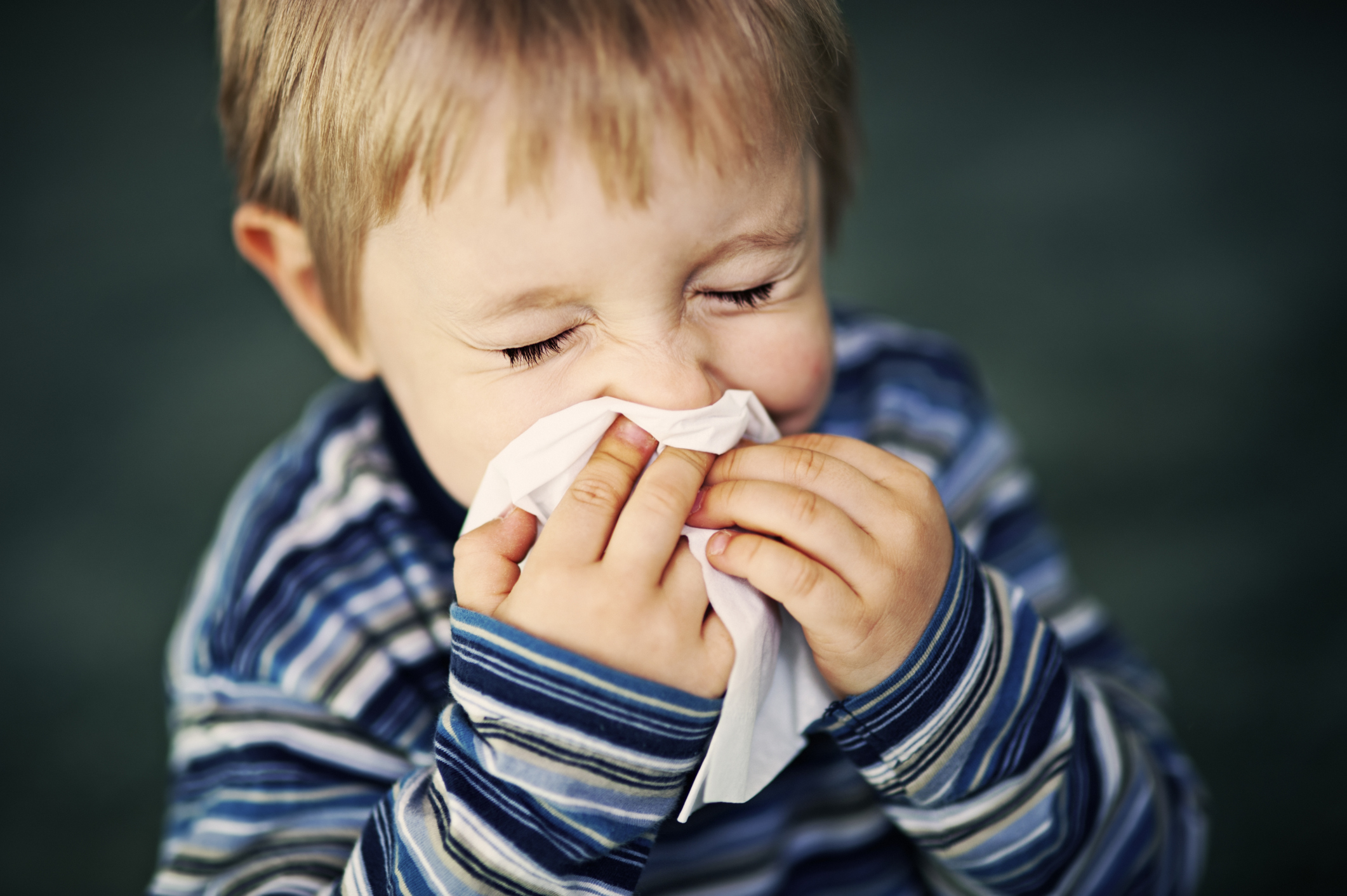
This content was originally produced for audio. Certain elements such as tone, sound effects, and music, may not fully capture the intended experience in textual representation. Therefore, the following transcription has been modified for clarity. We recognize not everyone can access the audio podcast. However, for those who can, we encourage subscribing and listening to the original content for a more engaging and immersive experience.
All thoughts and opinions expressed by hosts and guests are their own and do not necessarily reflect the views held by the institutions with which they are affiliated.
If it's winter and your child's cold symptoms have been hanging on for more than a month, it might not be a cold at all. Your child might actually have winter allergies in disguise.
Winter allergies are just as common as allergies in other seasons. Most parents simply don't realize their child may have them. Many parents simply think that their child is getting a cold over and over and over again. And that might be the case. Don't forget, kids get six to eight colds a year.
And the most confusing part about figuring out if your child has a cold or allergies is that the symptoms are so similar. Airborne allergies and common colds, both have coughs, sneezing, and a stuffy, runny nose. But there are a few key differences.
Allergies Can Last the Entire Season
The worst part of a cold should last less than 7 to 10 days. And your child should actually have a cold linger for 3 weeks. But after the first week, they should start to have some improvement.
Allergies, on the other hand, tend to last through the entire season and don't ever seem to get better. The allergy will usually start at the onset of a season while a cold could begin at any other time.
Colds Can Have Sore Throats, Fevers, and Body Aches
Other ways to tell them apart would be that your child's cold may start with a sore throat, fever, or body aches. And recurrent colds that don't have a fever could be allergies. Itchy eyes or an itchy nose or both would also be hints that your child has an allergy, especially if they keep using their hands to swipe their nose upward. That's called the allergic salute. And if they do it long enough, they'll actually develop a little crease on the bridge of their nose. Your child will also have thin, stringy mucous rather than liquid, drippy mucous.
When to See Your Child's Pediatrician
We know that allergies change and develop over time because they're driven by exposure. So you have to be exposed to that allergen more them once to have that allergy. In winter, allergies tend to be mold, dust, dust mites, and animal dander. These flare in winter because people spend more time inside in small spaces where those things like to be. If you aren't sure what your child has, let their doctor have a peek up their nose to find out the answer.
updated: December 18, 2023
originally published: February 5, 2018
More Answers to Your Questions on Keeping Your Kid Healthy and Happy
Latest trends and issues in children's health on the Healthy Kids Zone with Dr. Cindy Gellner

When Does Your Child Really Need Lab Work?
Parents often ask about blood tests during routine pediatric visits, but pediatrician Cindy Gellner, MD, clarifies that healthy children rarely need them. She shares some of the criteria for screenings in young patients and how insurance factors into decision-making.
What to Do When Your Baby Sounds Congested
Newborns cannot blow their noses, and they are not great at breathing through their mouths either—so even a little mucus can sound dramatic. Pediatrician Cindy Gellner, MD, shares what is normal when it comes to newborn sneezing and snorting, how to use saline and suction safely, and when to check in with your pediatrician.
Understanding Childhood Mood Disorders Beyond Bipolar
Is your child often irritable or prone to temper outbursts? Pediatrician Cindy Gellner, MD, clarifies the distinctions between bipolar disorder and Disruptive Mood Dysregulation Disorder (DMDD), emphasizing the importance of accurate diagnosis in childhood mood disorders.






